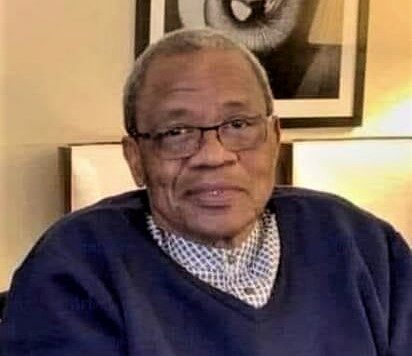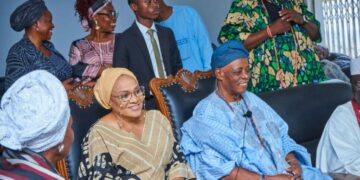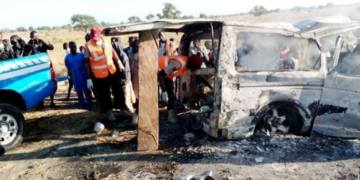Since he celebrated his birthday last year, I have had the special privilege of visiting General Ibrahim Badamasi Babangida (retd) in his Minna Mansion. Let me quickly confess that I was astounded and inspired by his candour that was welcoming.
Walking through the hall filled with birthday cards, I was ushered into the room where many great and poor of our nation have sat to either seek advice or help. The inspiring leadership traits he demonstrated early in life would lead to his emergence as Nigeria’s Military President in August 1985.
IBB, who once called the shots in deciding the fate of Nigeria from 1985-1993, welcomed me with a warm handshake. I had too many questions for the man whose leadership has had the greatest impacts, negatively or positively, on Nigerians. Was it true that he institutionalised corruption? How about his role in Nigeria joining the membership of Organisation of Islamic Countries (OIC)? Why did he allow the June 12 debacle to threaten the ship of state, following the annulment of the presidential election that was presumably won by Chief MKO Abiola? When citizens of a nation profile their leaders in negative colours; then, such a nation risks displaying ingratitude to those who have laboured so hard to serve it.
IBB’s constancy and relevance in adding value to the lives of Nigerians, inside and outside power, has turned his Minna Mansion into one of the country’s grandeur palaces that must be visited by political and economic juggernauts for blessings and consultations. While some may resort to visiting the former Military President for reasons beyond politics, the relevance of the daring and courageous military officer who shot his way into national limelight in the manner he disarmed Col Bukar Suka Dimka during the botched military coup of February 13, 1976 has continued to hold sway.
Thereafter, he became a flooding enigma of a personality whose popularity and capacity to bond with fellow officers and other soldiers became his staying power. Reputedly known for calling soldiers and subordinates by their first names, his humanness and his capability to walk a progressive career path would turn him into a weapon store for leadership. In IBB, you meet a former military leader who has turned his large-heartedness into a wall of defence. That has largely been responsible for his numerous getaways from the dungeon of death as demonstrated in several coups staged to eliminate him.
Early in life, IBB seemed to have been acquainted with the virtue of loyalty. In appreciating loyalty; the former Military President has come to appreciate the guiding words of an American scholar, Sheila Trenton: “Life has taught me that you can’t control someone’s loyalty. No matter how good you are to them, doesn’t mean they’ll treat you the same. No matter how much they mean to you, doesn’t mean they’ll value you the same. Sometimes the people you love the most, turn out to be the people you can trust the least.”
Since meeting him, I have come to the irrevocable and unquestionable conclusion that man’s capacity to survive in this life is tied to what he wants. IBB’s life is made less burdensome by pursuing the bigger picture that sees the individual in creative collaboration for the common good. Looking at leadership as an inspiring process that leads to either triumph or instigator of defeats; the leader must pay the greatest of attention in adding value to both individuals and groups by staying the course and pursuing the common interest.
Of all the military leaders that have governed our nation, none of them has suffered more criticisms than the IBB-led regime. Despite being a military government, he encouraged the opening of the democratic space by involving non-military personnel to build a nation. His critics describe his eight years in power as corrupt and raise doubts over the manner the alleged $12 billion oil windfall was spent. Over 29 years of stepping aside from the corridor of power, opponents of the Armoured General from Minna won’t allow his name to be erased from their red book.
If the past has vilified Babangida; the present has dressed him in saintly robes. IBB’s past has been a subject of negative stories of unachievable status; the present bourgeoning numbers of corruption cases and near-collapse of governance is gradually changing public perception. If inflating the cost of contracts was the problem then; public officers now steal money without awarding contracts. Public officers are now being prosecuted over billions of naira stolen from the public coffers, with some of them engaged in plea bargain.
I had expected to have seen IBB in regret over the voices of his critics; but the howling mob of critics was never his concern; he was only concerned with the unity of Nigerians across ethnicity and religions.. He dreams of a time when Nigerians, like Rwandans, would embrace citizenship as the basis of our nationhood and not ethnic religious identity tags. IBB is worried by the prevailing security situation in the country; but like the leader that he is; the Minna General sees no reason in relating with current occupants of power in the open. That he keeps silent in the public does not in any way reflect his satisfaction. He speaks to those who should hear and does not play to the gallery.
Beyond the screaming sounds of his critics; IBB’s roles in liberalising and widening the frontiers of the media have been unprecedented. Even when some of his colleagues in the military warned such may lead to coups; he forged ahead. Over 29 years after leaving power, the liberalisation of the media has enhanced the democratic rights of citizens and led to the transformation of news mediums.
Those who once accused the IBB-led government of corruption are now awe-struck by the present pervasive level of rot ripping across Nigeria. Apart from providing massive infrastructure in the country, with double-lanes, constructed from Abuja to Maiduguri; the Babangida regime, unlike previous military regimes, was noted for the engagement of intellectuals in policy direction and national development goals. That most of these programmes were neglected was not the fault of Babangida.
Most of his lieutenants have absolved him of any guilt over the nullification of June 12, insisting he did what he did due to current realities on the ground. Leadership comes with the price of accepting the mistakes of others. Through the years since he left power; the former military leader has never retracted, knowing that no one rewrite history. A nation that focuses on the past more than the future cannot be trusted to develop. The sign that a nation is not experiencing growth is when citizens wish for the past rather than embrace the present. I am sure by now that if citizens were to be given a choice to live either in the IBB years or the current years of despair that have engulfed citizens; many would prefer trekking to the past.
IBB has been saintly robbed through the harrowing realities of the present. Those who once saw the gap-toothed General as an evil genius are beginning to notice, as bad as things were; he did more for his nation than his predecessors. Nearly 30 years after leaving power, the IBB years are now beginning to be seen in clearer perspectives. His army of critics whose specialty is unleashing vitriolic on the past may have taken a deep lesson in the words of James Truslow Adams: “There is so much good in the worst of us, and so much bad in the best of us, that it ill behoves any of us to find fault with the rest of us”.
The former military leader may not have achieved his dreams for Nigeria, but he provides timely lessons that current power wilders can learn to deploy in moving the country forward. His achievements are greater than his mistakes. Going through the passage of time, IBB has been accorded more criticisms than strides he achieved while in power. Sadly, this is the trait of every true leader.
General, as you continue to walk through the western side of life; may abundant good health be your portion and may your dream for Nigeria and its greatness never diminish. Please do accept my happy belated birthday wishes in continuation of your love for his country and fellow citizens. History shall be kind to you!











